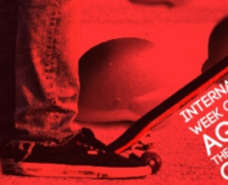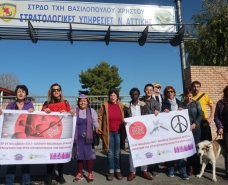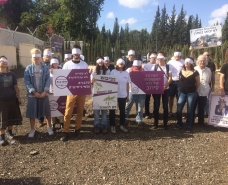Asian Youth Consider Political Career Despite Barriers
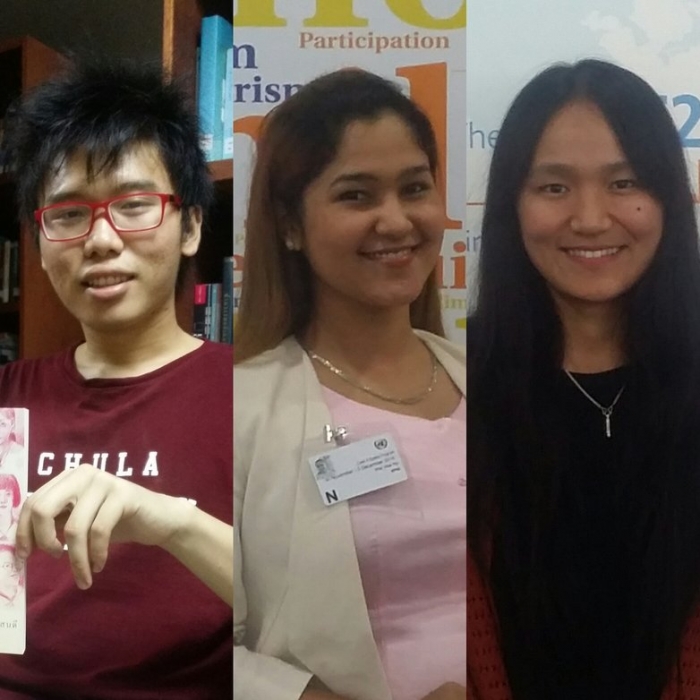
By Peera Songkunnatham
“I have to become a politician,” said Netiwit Chotiphatphaisal, a university student well-known in Thailand for his outspoken criticism of Thai schooling. “Even though I’ve given multiple interviews saying that I didn’t want to become a politician at all; I actually hated politicians. But I’ve changed my mind.”
Running against the current of political apathy and disillusionment among youth, Chotiphatphaisal is part of a new wave of youth in Asia considering running for public office to effect change. These young people articulate a willingness to engage in formal politics, but also a need to reform the political system from within.
But first they must overcome the many social and legal barriers in their countries, restrictions on participation that are often rooted in age, gender, and ethnic discrimination.
Chotiphatphaisal, 20, was one of the core members of a network of high school students who organised direct action and led campaigns to reform harsh enforcement of disciplinary practices in Thai schools. Most famously, Chotiphatphaisal went on national television to make a case against mandatory school uniforms, hairstyles, and other mandatory practices in Thai schools.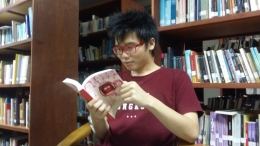
Among a list of issues, the organisation’s campaign against buzz-cut hairstyles for schoolboys gained momentum. The campaign received mainstream media attention, and after several letters to the Minister of Education, the Minister announced to all Thai public schools that enforcing buzz-cuts violates Ministry regulations.
“People thought the campaign was a success”, says Chotiphatphaisal. “But I think it was unsuccessful, because students didn’t think of fighting. They were just looking for a hero. They thought we were heroes. But we didn’t do anything. The Minister of Education was the real hero.”
Now a first-year university student, Chotiphatphaisal is facing new challenges and opportunities. He's earning respect from his peers as a student leader, organising a large-scale event commemorating the fortieth anniversary of the student killings at Thammasat University. Hundreds of students attended along with members of the public and national and international media.
“Professors told me to pursue my studies abroad, to go become a world citizen. They said, ‘this country is hopeless. Don’t risk your life here.’”
“But who would be the ones to develop the country if capable people all go live elsewhere?” says Chotiphatphaisal, who is working to secure a student government position next year to take more action against hazing practices at his university. “There is only so much you can do by posting statuses on Facebook. You have to get inside power to really change how things work.”
Young people between the ages of 15 and 25 constitute a fifth of the world’s population, yet the average age of members of parliament globally is 53, according to a United Nations Development Programme (UNDP) and Inter-Parliamentary Union (IPU) report.
In November, 2016, the campaign ‘Not Too Young To Run’ was launched at a United Nations forum at Geneva. The global campaign seeks to promote the right of young people to run for public office.
In a third of countries, people younger than 25 years old are not eligible to run for national parliament. According to the the IPU’s 2012 Global Parliamentary Report, only 1.65 per cent of parliamentarians around the world are in their 20s, and 11.87 per cent are in their 30s.
Chotiphatphaisal cites Hong Kong as an example of youth participation in politics, especially during and in the aftermath of the campaign for democracy that has become known as the ‘Umbrella Revolution’. The youth campaigners formed the political party Demosistō that won a seat in the 2016 Legislative Council election with its 23-year-old chairman Nathan Law.
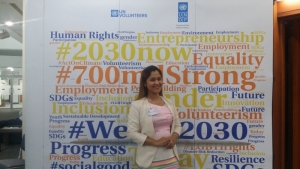 Wai Wai Nu, the 29-year-old director and founder of Women Peace Network Arakan Myanmar, found the question of whether she would become a politician a “tough question.”
Wai Wai Nu, the 29-year-old director and founder of Women Peace Network Arakan Myanmar, found the question of whether she would become a politician a “tough question.”
Nu explains that there are many barriers to political office for young people in Myanmar. “It is quite concerning that political parties’ leaders are older men. It is very difficult for a young person to be selected to be a representative within parties.”
For young women, in particular, entry into parliament becomes much more difficult, Nu claims. “A gender stigma exists. If I become a politician who contests an election, some people will dehumanise me. It is easier for women to be defamed. People would attack you with dirty scandals, invade your privacy.”
Nu, who is from the Rohingya ethnic minority, but lives in Yangon, says that Aung San Suu Kyi’s political ascension in Myanmar does not necessarily uplift women’s political power.
“By just having women leaders in the country doesn’t mean you have a lot of women actively working at the decision-making level. And I am not sure if [Aung San Suu Kyi] really puts her priority on promoting women in leadership or not,” says Nu.
Nu’s father Kyaw Min is a politician of Rohingya ethnicity who has faced persistent barriers to political office since the 1990 elections to the present, where a law excludes Rohingya people from candidacy. At age 18, Nu became a political prisoner along with her entire family, and remained imprisoned for seven years.
Nu is not intimidated by the difficulties that could come with running for office as a young minority woman. “I’m not afraid of that. I have the energy to face that, and the capacity to overcome that. But I think there are some barriers that shouldn’t exist just because of your identity,” says Nu.
For the time being, Nu remains outside formal politics, where she can be as impactful, she believes. Nu’s current work focuses on creating cross-ethnic understanding in Myanmar to promote peace.
While in Myanmar, the exclusion of ethnic minorities from formal political participation is legalized, in Bhutan, the rules are more unspoken. 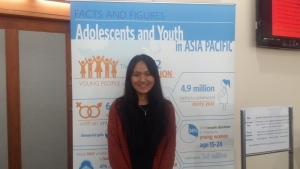
Wangchuk Dema, 24, from the Y-PEER youth peer education network, is another young woman who is considering a career in politics. What motivates her in doing social work is that, beyond volunteering she also gets to make real policy changes and impact big issues, she says. The main barrier that keeps Dema from seriously considering running for public office is her lack of fluency in Dzongkha, Bhutan’s official language.
A Bhutanese citizen, Dema was raised in the South of Bhutan, in the city of Phuentsholing, where Nepali is spoken. She grew up speaking Nepali as well as her mother’s tongue, Sharchop. She never managed to become completely fluent in the national language, and is more conversant in English and Nepali.
“It hits me that I have to be really good at our own national language. I’m really good at writing, but not speaking. Especially my pronunciation, everybody laughs at it. This holds me back from even thinking about what I want in the future,” says Dema.
Dema is joining Bhutan’s civil service next year. She says that this path could lead her towards a political career, and that her friends predict that she will become a politician.
“I’m really young right now to become a politician. But if I don’t start thinking at this age, I don’t think I can develop the confidence anymore in the future. This is the right time for me to get started. If I actually can become one, I think I can do it very well,” the twenty-four-year-old says.
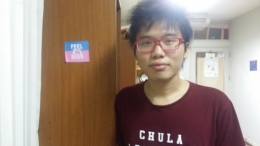 For Chotiphatphaisal, it’s not just the need to be involved in the political sphere, but also need to reform the political system. “Most politicians that we know now, they are not the real deal. They are not very genuine. They only want to remain in power. So I thought, there must be other politicians. And if no one else is doing the part, I will have to do it myself.”
For Chotiphatphaisal, it’s not just the need to be involved in the political sphere, but also need to reform the political system. “Most politicians that we know now, they are not the real deal. They are not very genuine. They only want to remain in power. So I thought, there must be other politicians. And if no one else is doing the part, I will have to do it myself.”
Moreover, Chotiphatphaisal is the most high profile conscientious objector to military service in Thailand. At twenty, he is now at the age where young male citizens are drafted for military service. As a university student, he has the option to postpone the draft until graduation.
However, it is unclear whether and in what form Thailand, currently under military rule, will return to democratically elected civilian rule. Analysts have argued that Thailand will become a “guided democracy” under the country’s new constitution.
“I want to sit in the Parliament too. I want to be the person with a different view,” says Chotiphatphaisal. “I like [British ex-MP] Tony Benn, he was the person who had very different ideas in the Parliament. I like listening to his speeches. To be someone like that is a possibility.”
Source: UNESCO/Peera Songkunnatham— this content was first published as part of the Youth Newsroom of the Regional Roundtable “Youth at the Heart of the Agenda 2030: The Case for Space” here:http://www.case4space.org/newsroom
Countering Military Recruitment

WRI's new booklet, Countering Military Recruitment: Learning the lessons of counter-recruitment campaigns internationally, is out now. The booklet includes examples of campaigning against youth militarisation across different countries with the contribution of grassroot activists.
You can order a paperback version here.


